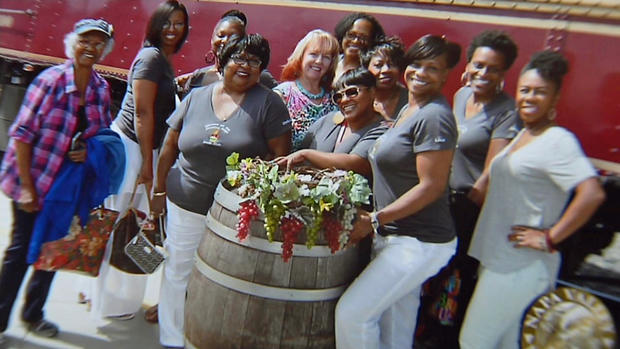In our world, having haters is something of a status symbol.
It’s more prestigious than a well-manicured home in the suburbs. More prestigious than having a private jet. More prestigious than 24-inch rims.
For some of us, no matter how educated or poised we are, no matter how successful we become, no matter how well off we may be financially, there’s something special about having haters.
Having individuals hate on us is indicia that we have attained a certain level of success. Having haters means we’ve finally made it. Just ask Jay-Z how all this works.
I’m not justifying measuring success by the amount of ill will that we generate, I’m simply explaining it.
And following this logic, as flawed as it may be, it would stand to reason then, that black women are the most successful people I know.
Because black women are absolutely the most hated group of people in this country, and quite possibly the world.
When black women get killed or go missing, we barely care they are gone.
Few have said a peep about the fact that 50 percent of all new cases of AIDS in America are black women, or the tremendous disparities that exist between black and white women’s access to reproductive health care.
Black women and their concerns are subjugated and co-opted in the feminist and civil rights movements, even though they buoyed both with their dedication and leadership.
We stand idly by while the media characterizes some of the most beautiful, elegant black women as crass and unattractive.
In fact, when Fox News called the president’s beautiful, Ivy League-educated wife, “Obama’s baby mama,” we barely flinched.
And recently, Napa Valley Wine Train showed us just how much we hate Black women.
After perp-walking a book club group of middle-aged and elderly black women off the Napa Valley Wine Train in a most humiliating fashion for laughing and drinking wine on a train created specifically for the purpose of socializing and drinking wine, Napa Valley Train Company then took to social media and called the group of black women “verbally and physically abusive.”
Some have suggested that the train’s actions were a part of a larger effort against all women, or otherwise justified because the women were, in fact, loud and obnoxious.
However, the CEO of the train’s own apology acknowledges that the women were humiliated not because they were women or because they were noisy, but, rather because they were black women.
“We were insensitive when we asked you to depart our train by marching you down the aisle past all the other passengers … We also erred by placing an inaccurate post on our Facebook site that was not reflective of what actually occurred … We failed in every measure of the meaning of good service, respect, and hospitality,” the CEO wrote to the group.
This isn’t just unfortunate, it is an alarming persecution of black women. It’s hate. It’s a whole-scale rejection of them.
There has never been a period in recorded African or black American history, in which black women have been able to be meek and humble ambassadors of femininity.
From the empires of ancient Egypt and Sub-Saharan Africa, to the anti-slavery movement, to the Civil Rights Movement, we and the world have expected black women to lead us, to lift us and to encourage us, to never be weak and vulnerable, and to fight even harder than their male counterparts for survival.
This fact is unsettling and intimidating to some, and creates resentment and hate for others. As a result, it is no coincidence that Serena Williams, Michelle Obama, Harriet Tubman, or any other woman of color who displays strength and fortitude is considered “mannish,” while Ronda Rousey, Hope Solo, and Mia Hamm can be feminine for displaying similar strength.
While the train CEO’s late apology is an acknowledgement of this, and a good beginning, it is insufficient to address how his employees contributed to this continued treatment of black women.




























